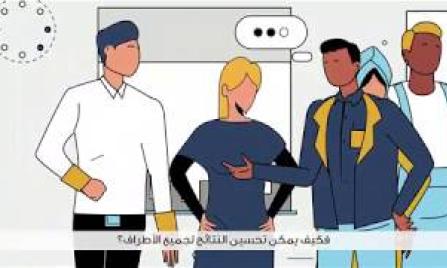-
Who We Are
WHO WE AREThe International Organization for Migration (IOM) is part of the United Nations System as the leading inter-governmental organization promoting since 1951 humane and orderly migration for the benefit of all, with 175 member states and a presence in over 100 countries.
About
About
IOM Global
IOM Global
-
Our Work
Our WorkAs the leading inter-governmental organization promoting humane and orderly migration, IOM plays a key role to support the achievement of the 2030 Agenda through different areas of intervention that connect both humanitarian assistance and sustainable development. Across Asia and the Pacific, IOM provides a comprehensive response to the humanitarian needs of migrants, returnees and host communities.
Cross-cutting (Global)
Cross-cutting (Global)
- Where we work
- Take Action
- Data and Resources
- 2030 Agenda
IOM recognizes that early, tailored provision of training and information is key to empowering migrants and paving the way for their successful integration. It provides critical information about migrants’ destination country and identifies the skills needed for migrants to succeed, whether in the workplace or in their new communities. IOM views integration as an essential component of effective and comprehensive migration management to promote social inclusion and good relations across diverse groups, thereby contributing towards diverse yet inclusive and cohesive societies.
To realize this, IOM offers technical and thematic support to beneficiaries and stakeholders through trainings, workshops, advisory services, and other capacity-building initiatives, drawing on a range of integration models and best practices gained through field experience. In line with the 2030 Agenda on Sustainable Development and the Global Compact for Safe, Orderly and Regular Migration (GCM), IOM’s programming on integration takes a “whole-of-community” approach and covers critical phases of the migration continuum, linking pre-departure and post-arrival activities, as well as migrant inclusion and social cohesion interventions, to ensure maximum effectiveness and benefit diverse populations.
In the Asia-Pacific region, IOM’s interventions largely focus on equipping migrants with basic information about the country of destination and help them to identify the skills and attitudes needed to succeed in their new environment. This is achieved through tailored training activities that focus on managing expectations, cultural orientation and developing the skills and awareness necessary for successful adaptation to their new society, including technical and language training. IOM also works on facilitating the integration of migrants in the labor market through skills assessment, profiling and job matching. This may also include activities that support financial inclusion and allow aspirant migrants to participate in vocational apprenticeships that generate employment opportunities.
